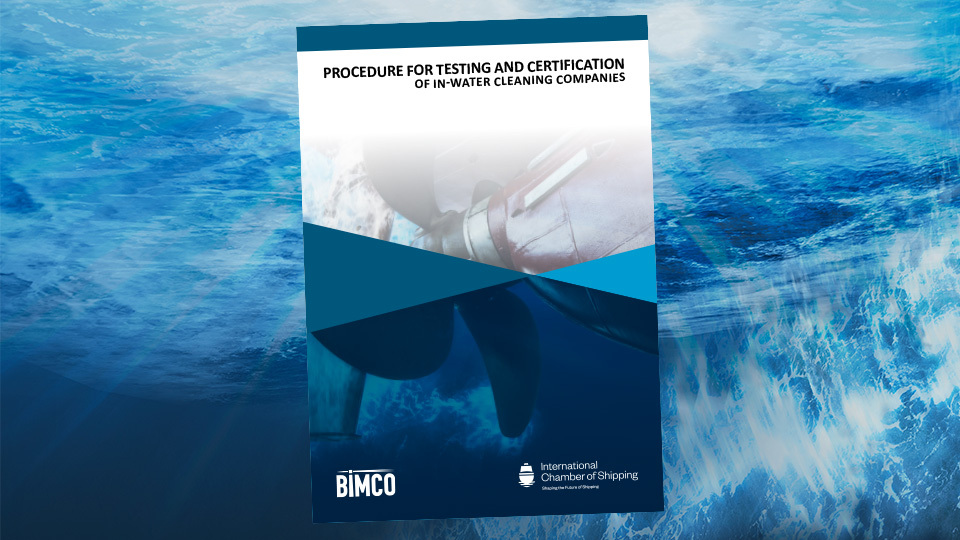Shipping bodies call on world leaders to bring forward discussions on global market-based measures
Overview
Ahead of President Biden’s Leaders’ Summit on Climate, the world’s major shipping organisations have called on world leaders to urgently examine the role of market-based measures (MBMs) to ensure ambitious decarbonisation targets are met across the entire global shipping industry.
- Ahead of President Biden’s climate summit, shipping industry bodies representing the majority of maritime trade have called on world leaders to quickly commence deliberations on how mandatory market-based measures (MBMs) could be implemented for international shipping.
- In a joint submission to the United Nations, the bodies are asking member states at the International Maritime Organization (IMO) to bring forward discussions on the development of market-based mechanisms to help decarbonise global shipping.
- Industry is asking governments to bring discussions on carbon pricing forward so that they can be considered in tandem with proposals to create a $5billion R&D Fund.
With the summit hosted by the United States seen as a vital precursor to COP26 and the IMO’s Marine Environment Protection Committee (MEPC), shipping bodies want leaders to put their political weight behind the industry’s desire to eliminate the 2% of all global CO2 that the sector emits.
Shipping bodies BIMCO, CLIA, International Chamber of Shipping, World Shipping Council, along with other industry groups, have submitted a proposal to the International Maritime Organization (IMO), calling for the UN’s regulatory body to bring forward discussions around MBMs by several years. These measures will be critical to incentivise the transition of the global fleet to new fuels and technologies, which will be more expensive than those in use today.
MBMs put a price on CO2 emissions to provide an economic incentive for a sector to reduce its emissions by narrowing the price gap between fossil fuels and zero-carbon fuels. Shipping leaders believe that now is the time for the IMO member states to consider the role of MBMs so that measures can be developed and implemented to facilitate the adoption of zero-carbon technologies and commercially viable zero-carbon ships.
For a pricing signal to work, there must be viable alternatives to fossil fuels. These alternatives do not yet exist for large trans-oceanic ships. Development of alternative technologies would be enabled by a massive acceleration of IMO co-ordinated R&D – to be financed by the industry - so that ocean-going ships will be able to switch to new fuels. To this end member states and industry have already put forward a mature proposal to create a 5 billion USD fund to provide the research and development needed to create the technologies to decarbonise the sector. Industry leaders have also reiterated their call for nations to support this R&D proposal at the IMO.
The growing need for the consideration of MBMs at the global level, along with accelerated research and development, is too urgent to ignore. The industry bodies set out in their submission to the UN:
“The ability to consider different candidate measures in parallel will be critical if [we are] to move forward with the urgency that the challenge of decarbonising shipping requires, given the urgent need to make progress on delivering [our] levels of ambition.”
In alignment with shipping’s strategy to reach decarbonisation targets already set by governments, the industry is encouraging the world’s largest economies to expand and accelerate applied research and development efforts. As MBMs can take several years to develop and enter into force, implementation of MBMs and their incentivising impacts will only be able to coincide with the wider introduction of zero-carbon technologies if measures such as the industry-financed R&D fund proposal are approved.
The shipping groups are calling for any MBM to be applied in a fair and equitable way. They echo concerns that have been raised over unilateral carbon pricing schemes, such as the EU’s proposed expansion of its ETS, which is seen by some observers as a market distorting solution to a global problem.
The industry bodies added:
“Fair and equitable MBMs are a viable policy option to transition to the new fuels and technologies that will be necessary to phase-out GHG emissions in the sector. We’re joining with industry colleagues to urge the UN and national governments to prioritise discussion on MBMs to make sure that shipping remains on course to meet vital decarbonisation goals.”
“The decarbonisation of international shipping will depend on out-of-sector stakeholders developing market-available zero-carbon technologies and fuels and the maritime sector will need the technologies to use these. The urgency of the challenge requires leadership and a properly coordinated approach to catalyse and incentivise the transition to zero-emissions sector”.
Notes to editors
The main international shipowner associations making this proposal, which collectively represent all sectors and trades and over 90% of the world merchant fleet, are:
- BIMCO
- CRUISE LINES INTERNATIONAL ASSOCIATION
- INTERNATIONAL CHAMBER OF SHIPPING
- WORLD SHIPPING COUNCIL
Feedback or a question about this information?
VPS Bunker Alerts
Veritas Petroleum Services (VPS) publish regular Bunker Alerts based entirely on fuel samples and have kindly permitted BIMCO’s Members to access this information.
The Bunker Alerts are not intended to be an evaluation of overall bunker quality in the port or area concerned, but usually highlight a specific parameter within the fuel which has raised a quality issue.
Latest ice reports for members
Latest piracy reports
Latest industry releasable threats
ELSEWHERE ON BIMCO
Contracts & Clauses
All of BIMCO's most widely used contracts and clauses as well as advice on managing charters and business partners.
Learn about your cargo
For general guidance and information on cargo-related queries.
BIMCO Publications
Want to buy or download a BIMCO publication? Use the link to get access to the ballast water management guide, the ship master’s security manual and many other publications.
About a new business partner
We can help members check new business partners. We also help to recover millions of USD (undisputed) funds every year.





